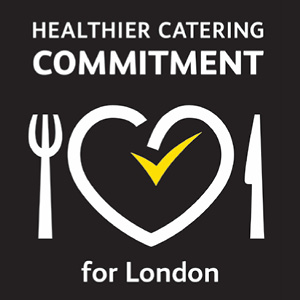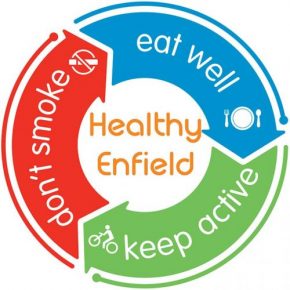Funding opportunities for businesses and schools
See below for funding opportunities for schools and businesses to support healthy eating.
Magic Breakfast Club
Magic Breakfast is a charity that delivers free breakfasts to school children facing hunger every day. A hungry child cannot concentrate, so could miss out on half a day of lessons every school day if not given anything nutritious to eat in the morning.
- Porridge, cereals (low salt or sugar), bagels and unsweetened juice (to be diluted) are all provided. Schools buy their own milk and spreads.
- There is a waiting list of schools but the club is committed to delivery as soon as funding becomes available
Kellogg’s Breakfast Club Network
Kellogg's are offering schools the opportunity to apply for a grant of £1000 to help fund breakfast clubs. A limited number of grants are available so priority will be given to schools that have 35% and above of children in receipt of pupil premium funding.
Warburtons
- Warburtons operate a product donation process through their bakery in Enfield.
- They also have a community grant of £250 available.
- National School Visitor Programme workshops and resources are also available.
Fareshare
- FareShare saves food from some of the UK’s top food companies and redistributes it to over 6,723 charities and community groups for a small monthly fee.
- Sign up to receive food (including breakfast clubs) using the registration form in the link above
Regional and national grants
See below for local and national grants for community projects that help encourage healthy eating.
Tesco bags of help
- A local community grant scheme funded by money raised from the plastic bag levy - grants of up to £4,000 available
Greggs local environment
- Dedicated to improving the local environment in ways that benefit the broader community - grants of up to £2,000
Ernest Cook Trust
- Inspiring young people to achieve better educational and life outcomes by learning from the land - small grants up to £4,000 and large grants up to £12,000
Our space
- Aims to help Londoners green their city through active community engagement and participation - grants from £500 to £5,000
The Foyle foundation
- Small grants of between £1,000 and £10,000 and large grants of majority of grants will be in the range of £10,000 to £50,000 for academies, special schools and PRUs, though generally not for independent schools
Grants 4 schools
- News about various grants, plus a useful grants search feature. There is also a comprehensive guide to grants available to UK schools, which includes 300 pages of detailed information about specific grants available (cost £66.66 excl. VAT).
IDOX grants
- Helps schools to source and secure external funding streams by providing access to a quick and easy search portal featuring UK and EU funding opportunities. Subscriptions from £100 per month, with no minimum sign up required.
Pebble
- Pebble’s goal is to empower you to generate an additional income year after year so that your school will flourish and become a truly exceptional learning space for your students. Provides the support, expertise and tools to help school leadership teams meet their school’s development goals. Large grants
database, grant writing help and bespoke solutions for fundraising. Annual license £420 for Primary, £600 for Secondary.
Institute of funding
- Offers courses and events that teach organisations how best to maximise their fundraising opportunities. Membership from £200 per year.
Food growing schools - free!
- Relevant for London schools - sign up to Food Growing Schools London’s newsletter to receive funding news
Food businesses
Could your café, canteen, restaurant, takeaway or vending machine be more Sugar Smart?
Join the Sugar Smart campaign by pledging to take 3 small actions that make a big difference, such as:
- Remove high sugar items from vending machines and ensure a minimum of 40% foods and drinks are healthy options
- Make tap water more prominently available and promote drinking water as the number one drink.
- Drinks with more than 5g sugar per 100ml represent less than 50% of the soft drinks range
- Sell specific drinks for children, limited to plain water, unsweetened fruit juices or semi-skimmed milk
- Pre-packed ready-to-eat confectionary, sugary snacks and dessert items (such as cakes) intended for individual consumption are no more than 250kcal or 27g sugar per packet and provide smaller sizes if available
- Offer ‘half-portions’ on items like cakes (this option must be clearly apparent for customers, such as by stating on menus, signage)
- Replace sugary items with healthier food and drinks and display signage about sugar content in everyday foods and drinks
- Introduce a traffic light system on drinks menus or shelves
- Remove ads and make it policy not to advertise or promote any food and drink high in sugar
- Ban price promotions on sugary drinks and snacks such as discounts, multi-buys, free items or meal deals
- Ensure there are no sugary drinks and snacks for sale at checkout areas to discourage impulse buying
- Get accredited by an external organisation to ensure the food and drink you serve is healthy, for example The Healthier Catering Commitment scheme
Healthy catering commitment
 The Healthier Catering Commitment is a voluntary scheme that supports London businesses to offer their customers healthier food options.
The Healthier Catering Commitment is a voluntary scheme that supports London businesses to offer their customers healthier food options.
- Healthier food - Healthier ingredients, methods and servings
- Cheaper ingredients - Up to 20% cheaper for healthier food ingredients from JJ Food Services
- Less waste - Less food waste, reduced disposal costs
Businesses that are signed up to this scheme should:
- use a monounsaturated or polyunsaturated oil containing less than 15 per cent saturated fat
- reduce the amount of salt used before and after cooking
- prominently display water and reduced sugar drinks
- advertise that smaller portions of some meals are available for adults and children
- ensure oil used for frying is correctly maintained
These standards aim to ensure that salt, saturated fat and sugar are reduced in the meals and snacks provided. The HCC scheme is backed by the Mayor of London and the Chartered Institute of Environmental Health. It is a London-wide initiative and Enfield is proud to be participating in the scheme.
For more information, visit Association of London Environmental Health Managers - Healthier Catering Commitment.
To find a business that is signed up near you, visit Healthier Catering Commitment - Find a Business.
Healthy eating resources for employers
Creating an environment where employees can and feel encouraged to eat healthily can create savings in healthcare costs, improve productivity and increase work morale. The links below will help employers to encourage healthy eating in the workplace.
Healthy eating information
- The Eatwell Guide poster - showing the UK Government’s healthy eating recommendations
- The Eatwell Guide booklet - explains the UK Government’s healthy eating recommendations
- Eat well - an NHS initiative to help people get healthier and feel better with free tips, tools and support
- Foodswitch - free app to help shoppers make healthier choices
- Free factsheets - from The British Dietetic Association
Making eating well easier at work
- Healthier Catering Commitment - award scheme
- Sugar Smart actions for workplaces - Sustain
- Workplace cake culture - C3health
Weight management support
Policy templates
- Sustain’s model catering guidance and Greener food policy
- British Heart Foundation’s health at work policy - template includes a section of healthy eating which could be adapted to cover the areas required by the London Healthy Workplace Charter standards
Healthy eating in pregnancy
Folic acid
Folic acid is very important for the development of a healthy foetus. It can significantly reduce the risk of neural tube defects (NTDs), such as spina bifida. It’s recommended that all women should take a daily supplements while they’re trying to get pregnant and during the first 12 weeks of pregnancy, when the baby’s spine is developing.
You can get them from pharmacies, large supermarkets, health food stores, or on prescription from your GP. If you are on income-related benefits, or under 18, you can get free vitamins while you’re pregnant.
Vitamins
You’ll get most of the vitamins and minerals you need by eating a healthy, balanced diet. It’s recommended you take a daily vitamin D supplement too - especially in the winter months (October to March) when you don’t get enough from the sunlight. Read more about vitamins in pregnancy.
Healthy diet
A healthy diet is an important part of a healthy lifestyle at any time, but is especially vital if you’re pregnant or planning a pregnancy. Eating healthily during pregnancy will help your baby to develop and grow. You don’t need to go on a special diet, but it’s important to eat a variety of different foods every day to get the right balance of nutrients that you and your baby need. It’s best to get vitamins and minerals from the foods you eat, but when you’re pregnant you need to take a folic acid supplement as well, to make sure you get everything you need. Read more about vitamins, supplements and nutrition in pregnancy.
Leisure centres
Sports clubs and leisure centres should be beacons of good practice given the link between diet and physical activity in maintaining a healthy weight. Yet, too many sugary drinks and snacks can still be found in sports clubs, gyms, swimming pools and leisure centres round the country. It’s time to act and support people in making the right food and drink choices and maintain a healthy weight.
Join the Sugar Smart campaign by pledging to take 3 small actions that make a big difference such as:
- Remove sugary items from vending machines and display information about the amount of sugar in everyday food and drink
- Install water points and promote drinking water as the number one drink
- Introduce a water only policy at training and games, and educate parents and children on the reasons for introducing it
- Improve catering by working towards the Healthier Catering Commitment
- Drinks with more than 5g sugar per 100ml represent less than 50% of the soft drinks rang
- Pre-packed ready-to-eat confectionary, sugary snacks and dessert items intended for individual consumption are no more than 250kcal or 27g sugar per packet and provide smaller sizes if available
- Offer ‘half-portions’ on items like cakes (this option must be clearly apparent for customers, such as by stating on menus, signage)
- Remove ads and make it policy not to advertise or promote any food and drink high in sugar
- Ban price promotions on sugary drinks and snacks such as discounts, multi-buys, free items or meal deals
- Replace sugary items with healthier food and drinks and display signage about sugar content in everyday foods and drinks
- Ensure there are no sugary drinks and snacks for sale at checkout areas to discourage impulse buying
Resources
- Information about the Healthier Catering Commitment Scheme
